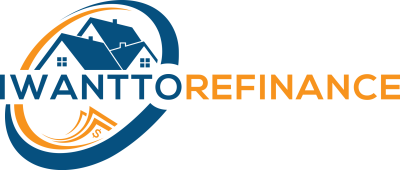Credit Counseling Guide 2023
Table of Contents:
1. Understanding Credit Counseling
2. Services Provided by Credit Counseling Agencies
3. Choosing a Credit Counseling Agency
4. Benefits and Drawbacks of Credit Counseling
5. Debt Management Plan - A Credit Counseling Service
6. Debt Management vs. Other Debt Consolidation Options
7. Frequently Asked Questions About Credit Counseling
Understanding Credit Counseling:
Credit counseling is a professional service that helps individuals analyze their financial situation. Credit counseling agencies offer various services, including debt management plans that consolidate credit card payments into a single payment with a lower interest rate.
Services Provided by Credit Counseling Agencies:
Credit counseling agencies offer a range of services, including:
- Budget counseling: A thorough financial review to assess your income, expenses, debts, and assets. This session helps establish a budget and identify debt consolidation options.
- Bankruptcy counseling: Required before filing for bankruptcy, this session evaluates your financial situation and determines if bankruptcy is the best solution.
- Housing counseling: Services for homebuyers, struggling homeowners, and reverse mortgage borrowers, including mandatory courses for mortgage lending programs.
- Student loan counseling: Analysis of student loans and evaluation of repayment plans, including outreach to loan servicers for information and consolidating monthly payments to pay off the debt within three to five years.
-
Financial education: Credit counseling agencies often provide free resources and tools for budgeting and debt management.
Choosing a Credit Counseling Agency:
When selecting a credit counseling agency, consider the following factors:
- Accreditation: Look for membership in reputable organizations like the National Federation of Credit Counselors (NFCC) or The Association of Independent Consumer Credit Counseling Agencies (AICCCA).
- Fees: Ensure the agency offers free initial consultations and transparent fee structures. Fees for debt management programs should comply with state laws and be fully disclosed.
- State licensing: Check if the agency is licensed in your state.
- Availability: Determine if services are offered through phone, internet, or in-person meetings.
Benefits of Consumer Credit Counseling Services:
Choosing credit counseling services can provide several benefits:
- Professional assistance: Credit counseling services offer expert guidance, creating a defined plan for becoming debt-free.
- Reduced stress: Working with a reputable credit counseling service can alleviate financial stress through free financial and budget reviews.
- Credit score protection: If your credit score is too low for other consolidation options, a debt management plan can help without further damaging your credit.
- Affordable payments: Credit counseling services can create manageable monthly payments, reducing the risk of dropping out of the program.
- Faster debt payoff: By avoiding minimum or late payments, you can accelerate your debt management plan and pay off debt sooner.
Pros and Cons of Credit Counseling:
Credit counseling, like other debt-relief options, has its pros and cons:
Pros:
-
Lower interest rates and savings
-
No collection calls
-
Affordable monthly payments
-
Waived late fees
-
Consolidated monthly payment
-
Clear and understandable plan
Cons:
-
Potential impact on credit
-
Frozen accounts
-
Limited credit options during the program
-
Program completion challenges
-
Enrolling all eligible debts is required
Debt Management Plan - A Credit Counseling Service:
For individuals struggling with credit card payments, credit counseling services may recommend a debt management plan. In this plan, a debt management company negotiates lower fees and rates with creditors. You make one payment to the company, which distributes the funds to your creditors. The plan typically spans five years and is regulated upfront and monthly fees apply.
Debt Management vs. Other Debt Consolidation Options:
When considering debt consolidation alternatives, consider factors such as credit score, income, and assets. Here are some guidelines:
- If you can afford payments and have good credit, consider balance transfers or debt consolidation loans.
- If you need debt relief, options like a debt management plan or debt settlement program might be suitable.
Remember to research and compare different options before making a decision. You can obtain free quotes, credit card offers, or debt consultations from various companies.
Comparison of Credit Counseling, Personal Loans, and Debt Settlement:
Consider the following table comparing qualification criteria and benefits of credit counseling with personal loans and debt settlement.


